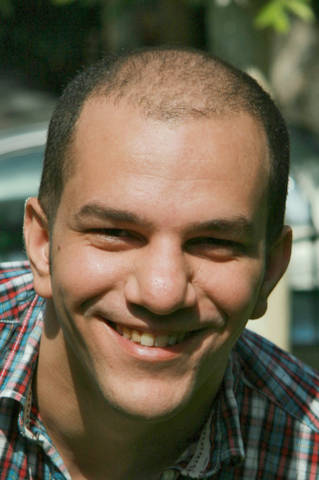The freedom of non-expression
By Osama Diab
Advocates of banning the face veil want to take away the only choice some women have – the choice to conform.
28 July 2010
She used to love to sing, dance and swim. She used to daydream of summertime when there was no school and when she could spend the entire day at the beach swimming and building a castle out of sand. She used to do this every year until she was 11 when her mother told her she couldn't wear a swimsuit anymore. When she requested an explanation, her mother simply told her that she was “a big girl now”. Puzzled by her mother's words, she thought there was something wrong with her or with her body.
However, they still went to the beach, but the women would sit there mostly covered while the men (her father and younger brother) would enjoy their time in the water. Through this experience, she learned that boys and girls are different. She grew to understand that her actions are not just going to affect her but her entire family.
A few years later when she grew breasts, her mother stopped allowing her to buy certain clothes because they were “too tight” or “too transparent”. “You have the entire shop to choose from and you choose this,” her mother would chastise her. Her brother would come from the men's section with a pile of clothes which the mother wouldn't even glance at.
The girl was very attractive as a teenager and drew the uninvited attention of men and boys. Since this was new to her, she thought there must be something wrong with the way she dressed or acted. When her family found out about one of the harassment incidents, instead of showing sympathy, they were angry at her.
She eventually chose to wear the hijab and act very seriously, believing that this would keep men away from her. She also knew that she could be a great source of pride for her family if she behaved like a “good girl”, or a source of shame if she didn't. So the other reason why she decided to cover her hair was the positive feedback she was expecting from them. She didn't want to be perceived as immoral, useless and a source of disgrace.
After she told her mother, her mother called her friends and siblings and proudly boasted to them about “what a great daughter she has” who chose “voluntarily” to wear the hijab at just 16.
After high school, she wanted to study acting, but knew that wasn't realistic. Her mother told her, “Out of all the schools in the world, you choose acting. What's wrong with engineering, business, or even languages.” She “chose” to study English instead.
At college, she fell in love for the first time in her life. The man had a Muslim name, but was from a Bahai'i family. She was too afraid to tell her mother about it, but when she had the courage to do so, her mother screamed, “Out of all the men in the world, you choose a Bahai'i. I really wish you would die. You need to stop seeing this guy immediately.”
The next guy was Muslim and fitted most of her family's criteria. Her family blessed the marriage. One day before her wedding, her mother gave her advice on how to act in bed: “Men get very suspicious really easily. Act like you know nothing and have no experience. Men like innocent girls.”
She considered telling her husband about her sexual needs and what she would like to experience, but she was too afraid of his reaction or what he might think of her. She decided to live with no sort of sexual communication and even tried to get these ideas out of her head because these things are just not right.
Despite these disappointments, she didn't quite notice that she had little influence over the course of her life, and that it was all predetermined and designed by both her parents and society. She never really dwelt on how social rules and taboos were such a powerful force that she had little option but to abide by them.
She heard on the news that Syria had decided to ban the niqab in schools and that a general ban was being discussed in some European countries. She found that this was s unfair and believed that it should be the woman's choice whether or not to cover her face. The government should simply have no say in it. Even though she agrees that it has nothing to do with Islam, she is still very angry that some people would ban somethingthat enabled women to exhibit their modesty.
Her mind became more accepting of the idea that the West is at war with Islam. She became more appreciative of her values and how she was brought up, and refused to question either.
As a sign of that appreciation and conviction, she decided that when she turns 40, she would don the niqab. She informed her husband and parents and they praised her decision and told her that it would make her a great role model for her daughters. On her 40th birthday, she celebrates by covering her face, firm in the belief that it was all her own choice.
Published here with the author's consent. ©Osama Diab. All rights reserved.



Coming from an entirely different culture and not wanting to be in the middle of a dispute I have little experience with I look upon the treatment of women in Muslim countries as being unfair. If I were not afraid of hurting my Muslim friends, I would use a much stronger word then unfair.
Via Facebook